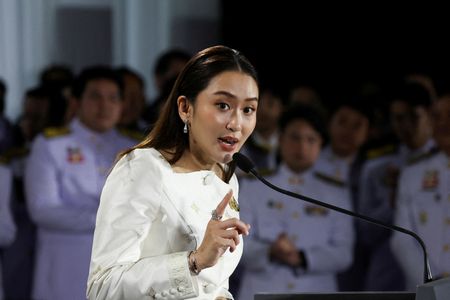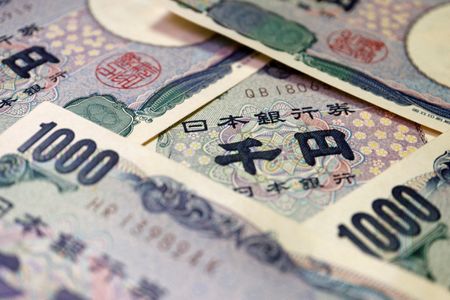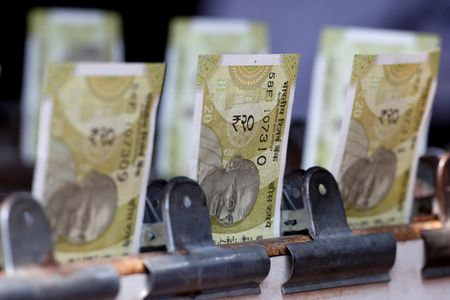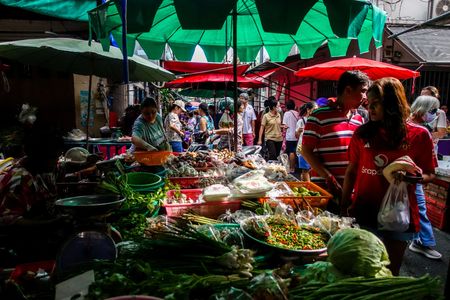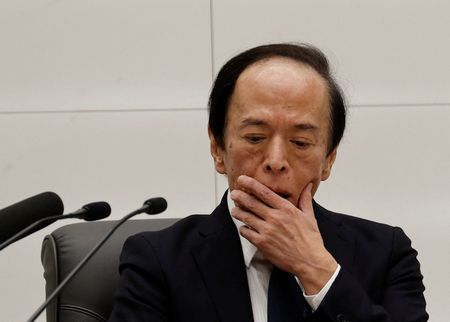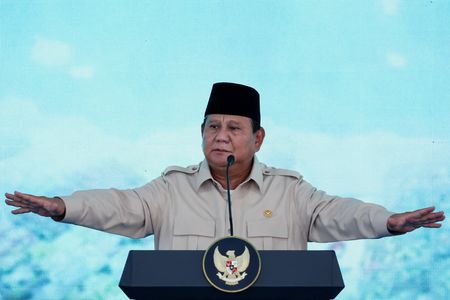BANGKOK (Reuters) – Thailand’s Prime Minister Paetongtarn Shinawatra has ordered a study on the potential impact of U.S. trade policy on Thai exports, an official said on Tuesday, underlining concerns that its trade surplus with Washington could become an issue.
Thailand had a surplus last year of $35.4 billion with the United States, according to the commerce ministry, which has cited challenges to growing exports, a key driver of Thailand’s economy, due to President Donald Trump’s uncertain trade policies.
The United States was Thailand’s largest export market last year, accounting for 18.3% of total shipments, or $54.96 billion.
“Under the leadership of President Trump, the United States will have trade policies such as tariffs that may have a negative impact on Thai agriculture exports, and other products such as electronics,” government spokesperson Jirayu Houngsub said.
A working group on U.S. trade was created in January to plan Thai trade policies with the United States, Jirayu said. The group would urgently summarise pros and cons for trade and investment negotiations, he added.
Thailand’s investment board is planning to attract foreign investment in semiconductors, printed circuit boards and electronics, amid a renewed U.S.-China trade war. It is targeting around 500 billion baht ($14 billion) in new investments in semiconductors by 2029.
Trump last month signed a broad trade memorandum ordering federal agencies to complete comprehensive reviews of a range of trade issues by April 1, including analyses of persistent U.S. trade deficits.
Thailand plans to try to narrow its trade gap with the United States by importing 1 million tonnes of ethane in the second quarter this year.
Thai Commerce Minister Pichai Naripthaphan said that after discussions with U.S. companies in Washington earlier this month, there was a positive view on Thailand.
The private sector sees Thailand as an important ally and production base, he said, adding he invited U.S. companies to invest in the Thai pharmaceuticals, energy, digital, and agricultural industries.
(Reporting by Chayut Setboonsarng and Kitiphong Thaichareon; Editing by Martin Petty)

